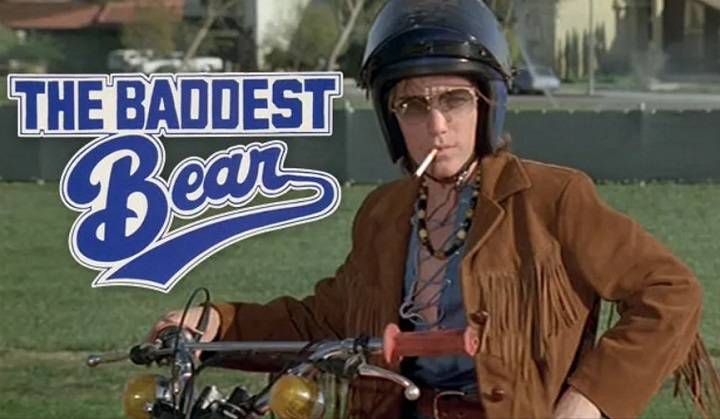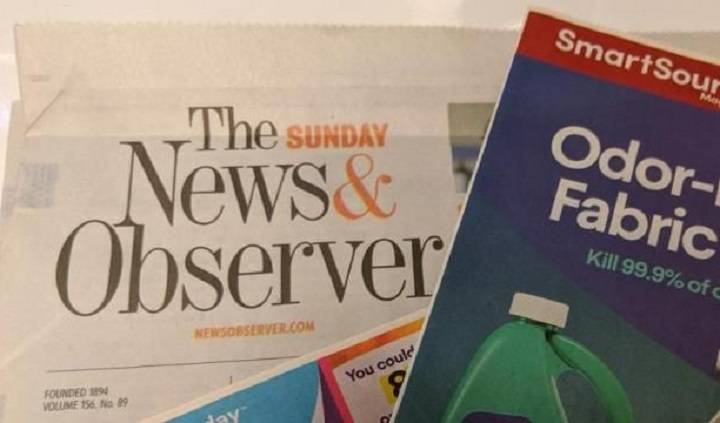
CNN Weekly News Quiz: A Modern Ritual of Recollection, Perception, and Connecting
Weekly existence begins and ends with the news. It greets us in the mornings over coffee, travels with us on commutes, rings our phones during meetings, and snuggles with us on the sofa at night. In between all this non-stop scroll, however, most individuals do not even remember what they read yesterday, let alone what happened last Monday. Headlines flash, emotions intensify, and then the feed is reloaded. But within the cycle of attention, distraction, and re-attention, something unexpected had started to make its space — the CNN Weekly News Quiz.
On first glance, it may seem just another link. A trivia second. An interruption. But to millions, the CNN Weekly News Quiz has become something more than that. It’s become a ritual — a pulse check, a memory test, a means of catching breath and saying, “Did I actually pay attention?” In a time when we are eternally in reply, this quiz makes us hit pause. And that is what gives it significance.
There’s something grounding to facing the quiz each Friday. It doesn’t call for opinion. It doesn’t provoke indignation. It simply demands: Do you remember what happened this week? That question, pleasantly plain, cuts through the noise. Because to remember is to care about. And to care about is to stay human in an ocean of information.
A Pulse on the World, One Question at a Time
CNN Weekly News Quiz is straightforward in design: ten multiple-choice questions on the week’s most significant stories. It zigzags categories — politics, pop culture, health, science, world news. Some with photos, others with headlines only, but all serve the same sneaky function: to test your memory not just for what occurred, but for what mattered.
And although it’s a game, the feeling it inspires isn’t always light. For some of us, the quiz is a mirror. It reflects where our attention has been — were we present, or were we on autopilot? Did we scroll through, or did we interact? Sometimes the quiz feels like a party, especially when you answer every question correctly. But sometimes, it reminds you of your place. Reminds you of what goes by. How much you never noticed, when it was sitting right there.
No score to change your life. No prize at the end. But filling out the quiz is a form of responsibility. It pulls you back to the present. It reminds you that history is not written in decades. It’s written week to week. And you are living it.
News Memory in the Age of the Scroll

Today’s news consumption is chaotic. You’ll read fifteen headlines before breakfast, hear three breaking stories by lunch, and still not be able to remember any of it. Headlines are designed to outrage rather than explain. And in the haze of new media, everything is as urgent until it’s gone. The CNN Weekly News Quiz dares you to slow down and unravel the threads.
Along the way, it does a deeper job than we realize. It’s a memory aid, a psychological anchor in the maelstrom of diversion. When you sit down to take the quiz, your brain doesn’t just try to react — it starts sifting through the gradients of your week. What did I read Monday morning? Was that headline Tuesday or Thursday? Did I actually see what I believe I did, or did I just scroll on?
The brilliance of the CNN Weekly News Quiz is that it takes passive viewing and makes it active recall. It takes information and makes it reflection. And in the age of refresh constantly, that action alone is revolutionary.
How the Quiz Became a Cultural Habit
When CNN initially introduced the weekly news quiz, it probably did not anticipate the kind of fervor it would trigger. But within months, it had become a staple of individuals’ weekly lives. Teachers utilized it in school. Families matched scores. Friends challenged one another through screenshots and group chats. And subtly, nearly as a silent consent, the quiz became one of the things individuals used to measure time.
In the same way that Friday night Jeopardy or Sunday crosswords is familiar, so too is CNN Weekly News Quiz. You know what you’re receiving. Ten questions. Multiple choice. That moment of “yes!” when you have it right and that slow shaking of the head when you don’t. But yet, each quiz is new — tied to this now, this week, this moment. And that’s how it links the personal to the universal. You don’t just learn what happened. You step inside it.
For some, the quiz is a way of reconnecting to the world after seven days of confinement. It doesn’t ask you to argue or guess. It just asks you to remember. And in a culture founded so much on forgetting, that’s a little act of rebellion.
From Headlines to Heartlines
One of the surprising things about the CNN Weekly News Quiz is the emotional range it quietly spans. Some questions are light — a celebrity baby announcement, a quirky science discovery, a sports stat. Others carry weight — a humanitarian crisis, a major policy shift, a tragedy. And yet, because you’re asked to recall them side by side, something interesting happens. The week becomes whole. Balanced. Real.
You notice how strange and lovely and heartbreaking life is, all at once. That the same week held joy and savagery, comedy and meaning. The quiz doesn’t tell you what to feel. But it tells you to feel. To register the affective residue headlines leave behind. And sometimes, by getting a question wrong, you catch what you forgot not only factually, but affectively.
This is the gentle genius of the design. It doesn’t lecture. It doesn’t scold. It simply lights up what you saw and what you didn’t see. And in doing so, it gently expands your awareness — not with guilt, but with curiosity.
Why Scoring Isn’t the Point — But Still Matters
Of course, every quiz ends with a score. Out of ten. You click “submit,” and there it is. Maybe a high five. Maybe a groan. But either way, the number lingers. It becomes a personal benchmark, a weekly reminder of just how concentrated — or ditzy — you’ve been. And while the score doesn’t define you, it does quantify something real.
No shame in getting a few of those wrong. But the desire to do better, to improve, is what makes the CNN Weekly News Quiz more than just trivia. It becomes a motivation — to read more deeply, to listen more intently, to not simply soak up sound bites but understand them. And in a world where news fatigue is an actual epidemic, that motivation matters.
To others, the score is a quiet badge of pride. Proof that you’re keeping up. That you’re not tuning out. That you still care enough to know. And when caring is sometimes a weight, the quiz turns it into a badge.
The Social Side of the CNN Weekly News Quiz

Aside from its individual impact, the CNN Weekly News Quiz is also a bridge to society. A vehicle through which people connect not just with facts, but with shared experience. Couples take it together. Siblings wager against one another. Coworkers playfully rib each other about what questions they were stumped on. And in that shared engagement, the quiz becomes more than content. It is community.
In a wired world where so much of our media consumption is solitary and silent, this kind of interaction is the exception. It promotes talk. Reflection. The humble question “Did you do the quiz?” becomes an invitation, a check-in, a ritual. And in that fleeting connection, something gets shared. News isn’t just what we sit and read alone, but what we remember together.
Also Read: 10 Emerging SEO Trends to Watch Out For in 2025
A Classroom Tool with Real-World Impact
Many teachers have incorporated the CNN Weekly News Quiz into the curriculum — and for very good reasons. It delivers current news in simple, nonpartisan, and interesting terms. It encourages students not only to memorize facts, but to make those facts relevant. To geography. To history. To human experience.
Utilizing in classrooms, the quiz may invite discussion, debate, and further research. It becomes a springboard — not just a testing of what students already know, but a call to know more. And because the quiz updates weekly, it stays current. It’s not abstract. It’s timely. And the timeliness of it helps students understand that news isn’t necessarily about history. It’s about the world they’re moving into.
Teachers across the country have found creative ways to use the quiz — warm-ups, homework assignments, group activities. And by doing so, they’re not only helping build knowledge, but also habits. Habits of focus. Habits of engagement. Habits of active citizenship.
Keeping the Quiz Honest in a Changing News Landscape
As news evolves, so too must the quiz. One of the ongoing challenges for any news organization is how to be both accurate and interesting. And the CNN Weekly News Quiz accomplishes it with panache. It doesn’t dumb down tough stories, but it distills them to their essence. It doesn’t avoid controversy, but it presents it in plain language. And in doing so, it demonstrates respect for the intelligence of its audience.
In a time of misinformation, when headlines are often manufactured to provoke and not educate, the quiz is clear. It’s based on stories that were really written. It doesn’t manipulate or lie. It tests true memory, not clickbait awareness. And that integrity gives confidence.
Even the wrong answers in the quiz are taken into account. They’re not absurd. They’re close enough to make you think — to challenge your assumption. And that soft questioning keeps you honest. Keeps you learning.
Looking Ahead: The Future of News Quizzing
What began as a simple quiz has become an institution. But its potential continues to grow. The format might be built upon — with theme quizzes, video integration, deeper explorations. It might be applied with schools, with libraries, with community organizations. It might become one of the methods by which we learn and enlighten beyond the page.
But even if it never changes, the CNN Weekly News Quiz is doing something valuable already. It gives us space to slow down. To think. To remember. And by doing so, it shows us that knowledge isn’t just about knowing. It’s about paying attention. Being here. Being enough to say: Yes, I read the news this week. And I remember.
FAQs
What is the CNN Weekly News Quiz?
It’s a weekly 10-question multiple choice quiz from the largest news stories featured on CNN, testing readers’ current events knowledge and memory.
How often is the CNN Weekly News Quiz updated?
The quiz is updated each Friday with questions about the most important headlines and cultural happenings of the past week.
Can I use the CNN Weekly News Quiz in the classroom?
Yes. The quiz is often used by many teachers as an instructional device to encourage students to engage with the news and provoke discussion.
Is the CNN Weekly News Quiz free to take?
Yes, the quiz is offered for no cost on CNN’s website and is not a subscription-based quiz or one that you would need to log in to respond to.
Do you get feedback after completing the quiz?
You get scored on a scale of 10 and are presented with the correct answers, usually with short explanations or references to the complete stories.




